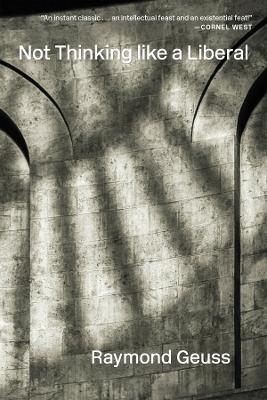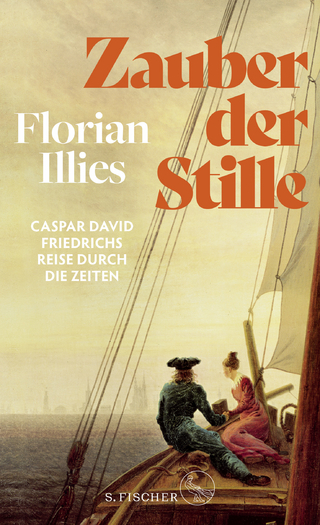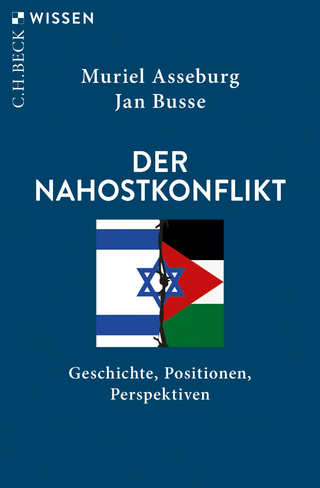
Not Thinking like a Liberal
Seiten
2025
Harvard University Press (Verlag)
978-0-674-29731-9 (ISBN)
Harvard University Press (Verlag)
978-0-674-29731-9 (ISBN)
- Noch nicht erschienen (ca. Februar 2025)
- Versandkostenfrei innerhalb Deutschlands
- Auch auf Rechnung
- Verfügbarkeit in der Filiale vor Ort prüfen
- Artikel merken
Raymond Geuss is a critic of liberalism, a politics so pervasive in the West that it goes unnoticed. His attention sharpened by his own unorthodox intellectual journey, Geuss locates what we fail to see in the status quo: its shallowness and futility. Rejecting both authoritarian horror and liberal complacency, Geuss looks to genuinely new ideas.
“An instant classic….an intellectual feast and an existential feat!” —Cornel West
“By intertwining autobiography and conceptual critique, Geuss underlines the idea that in order to gain a critical perspective on liberalism, it is necessary to become almost bilingual: able to speak the language of liberalism while also becoming fluent in the vocabulary of its critique.” —Times Literary Supplement
“Fascinating…deserves to be a classic. It is at once relatable and profound, humane and auspicious. In his best moments, Geuss offers his own life as a challenge to readers to think differently and more imaginatively.”—Matt McManus, Jacobin
“[Geuss’s] broad, skeptical account of human powers and interests that is aimed at challenging the hubris of abstract theorizers, is compelling. His account of the unusual formation of his own intellectual and political sensibility is both moving and illuminating.”—Richard Eldridge, Los Angeles Review of Books
Liberalism is so amorphous and pervasive that for many people it is background noise. But there are nooks and crannies in every society where the prevailing winds don’t blow. Raymond Geuss grew up some distance from the cultural mainstream and recounts here the unusual perspective he absorbed: one in which liberal capitalism was synonymous with moral emptiness and political complacency.
The bright son of a Catholic steelworker, Geuss was admitted in 1959 to an unusual boarding school on the outskirts of Philadelphia, where Hungarian priests sought to immunize students against the twin dangers of oppressive communism and vapid liberal capitalism. From there he went on to university in the early days of the Vietnam War and to West Germany, where critical theory was experiencing a major revival. An incisive thinker, Geuss looks beyond the horrors of authoritarianism and the shallow freedom of liberalism to glimpse a world of genuinely new possibilities.
“An instant classic….an intellectual feast and an existential feat!” —Cornel West
“By intertwining autobiography and conceptual critique, Geuss underlines the idea that in order to gain a critical perspective on liberalism, it is necessary to become almost bilingual: able to speak the language of liberalism while also becoming fluent in the vocabulary of its critique.” —Times Literary Supplement
“Fascinating…deserves to be a classic. It is at once relatable and profound, humane and auspicious. In his best moments, Geuss offers his own life as a challenge to readers to think differently and more imaginatively.”—Matt McManus, Jacobin
“[Geuss’s] broad, skeptical account of human powers and interests that is aimed at challenging the hubris of abstract theorizers, is compelling. His account of the unusual formation of his own intellectual and political sensibility is both moving and illuminating.”—Richard Eldridge, Los Angeles Review of Books
Liberalism is so amorphous and pervasive that for many people it is background noise. But there are nooks and crannies in every society where the prevailing winds don’t blow. Raymond Geuss grew up some distance from the cultural mainstream and recounts here the unusual perspective he absorbed: one in which liberal capitalism was synonymous with moral emptiness and political complacency.
The bright son of a Catholic steelworker, Geuss was admitted in 1959 to an unusual boarding school on the outskirts of Philadelphia, where Hungarian priests sought to immunize students against the twin dangers of oppressive communism and vapid liberal capitalism. From there he went on to university in the early days of the Vietnam War and to West Germany, where critical theory was experiencing a major revival. An incisive thinker, Geuss looks beyond the horrors of authoritarianism and the shallow freedom of liberalism to glimpse a world of genuinely new possibilities.
Raymond Geuss is Professor Emeritus in the Faculty of Philosophy at the University of Cambridge. His books include Changing the Subject, Reality and Its Dreams, and Who Needs a World View?
| Erscheint lt. Verlag | 28.2.2025 |
|---|---|
| Zusatzinfo | 3 illus. |
| Verlagsort | Cambridge, Mass |
| Sprache | englisch |
| Maße | 140 x 210 mm |
| Themenwelt | Literatur ► Biografien / Erfahrungsberichte |
| Sachbuch/Ratgeber ► Geschichte / Politik | |
| Geisteswissenschaften ► Philosophie | |
| ISBN-10 | 0-674-29731-8 / 0674297318 |
| ISBN-13 | 978-0-674-29731-9 / 9780674297319 |
| Zustand | Neuware |
| Haben Sie eine Frage zum Produkt? |
Mehr entdecken
aus dem Bereich
aus dem Bereich
Caspar David Friedrichs Reise durch die Zeiten
Buch | Hardcover (2023)
S. Fischer (Verlag)
25,00 €
Geschichte, Positionen, Perspektiven
Buch | Softcover (2024)
C.H.Beck (Verlag)
12,00 €


